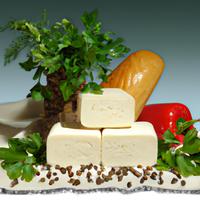
1 serving (28 grams) contains 50 calories, 7.0 grams of protein, 2.0 grams of fat, and 1.0 grams of carbohydrates.

Log this food in SnapCalorie

Nutrition Information
Calories |
423.7 | ||
|---|---|---|---|
% Daily Value* |
|||
| Total Fat | 16.9 g | 21% | |
| Saturated Fat | 8.5 g | 42% | |
| Polyunsaturated Fat | 0 g | ||
| Cholesterol | 84.7 mg | 28% | |
| Sodium | 1694.9 mg | 73% | |
| Total Carbohydrates | 8.5 g | 3% | |
| Dietary Fiber | 0 g | 0% | |
| Sugars | 0 g | ||
| protein | 59.3 g | 118% | |
| Vitamin D | 84.7 mcg | 423% | |
| Calcium | 1271.2 mg | 97% | |
| Iron | 0.8 mg | 4% | |
| Potassium | 169.5 mg | 3% | |
* Percent Daily Values are based on a 2,000 calorie diet. Your daily values may be higher or lower depending on your calorie needs.
Food Attributes
Source of Calories
About Low calorie cheese
Low-calorie cheese is a lighter alternative to traditional cheese, designed for those seeking flavorful, nutrient-rich options with reduced calorie and fat content. Typically made from cow, goat, or sheep’s milk, it undergoes a process to produce cheeses with lower fat percentages while retaining protein, calcium, and other essential nutrients. Common types include cottage cheese, reduced-fat cheddar, mozzarella, or parmesan. Popular in Western cuisine, it complements salads, wraps, omelets, or serves as a standalone snack. Its healthful aspects include high protein, less saturated fat, and fewer calories, making it suitable for weight management and heart-conscious diets. However, some brands may add sodium or artificial stabilizers to enhance texture or flavor, which should be checked on labels. Overall, low-calorie cheese offers a versatile and nutritious way to enjoy the creamy goodness of cheese without compromising wellness goals.



